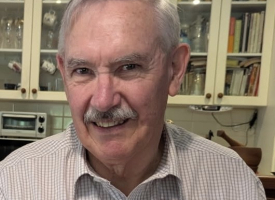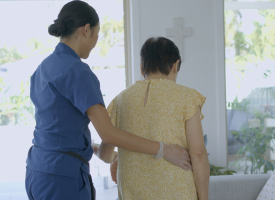President’s update: science trumps opinion
AMA President Dr Danielle McMullen provides members with the latest from the national AMA.

Hello, and happy Friday… what a week!
The week started out so well, with the announcement last Sunday of formal recognition of rural generalist medicine as a specialist field within general practice. This is a move supported by the AMA for years — acknowledging the advanced skills of rural generalists and the vital role they play, along with rural GPs, in delivering comprehensive care to rural and remote communities. Congratulations to all our RG members!
By late Monday we were getting whispers of what was to come from the White House. By early Tuesday morning, the US administration was on the air claiming links between paracetamol use in pregnancy and autism (and other far-ranging claims that thankfully didn’t get as much media pickup). So, unsurprisingly, I spent all of Tuesday explaining science, quelling fears, and stomping on stigma. While there have indeed been some studies showing a potential association, there is by no means the weight of evidence to change clinical practice. Let me assure you, trying to explain that association doesn’t equal causation in a soundbite for the radio isn’t easy! But it certainly feels like science communication is a skill more of us, and more journalists, will have to learn.
I think it ended up somewhere in the ballpark of thirteen separate interviews I gave on Tuesday, and our VP Julian Rait stepped in to handle quite a few as well, including a spot on overseas news provider Bloomberg TV. I spoke with ABC RN Breakfast and ABC News Breakfast, Channel Nine Today Show, The Guardian, The Medical Republic, and a bunch of others. Thank you to all our state AMA presidents who also spent time on the airwaves across the country.
The misrepresentation of science and health information is harmful, it undermines trust in healthcare, and every minute we spend refuting these sorts of announcements is a minute lost that we could be spending on advancing care and information, rather than undoing harm.
The most heart-breaking, rage-inducing, dangerous parts of the announcements are the flow-on effects of fear, guilt and stigma for mothers, for families and for people living with autism. As a profession we stand ready to counsel them one-on-one — thank you in advance for that. You’ve got those skills, and there are a range of great resources out there to help — the TGA put out a great statement outlining how medicines safety advice here has not changed, RANZCOG has released a statement summarising their assessment of evidence to date. I have concerns that some women will substitute paracetamol for ibuprofen or diclofenac, which we know have an inferior safety profile, and I encourage you all to have conversations with your patients who are pregnant or planning pregnancy about how to manage pain and fever.
Sadly, I doubt this is the last time we’ll have a day like Tuesday, and I expect vaccines will be under increasing threat from misinformation. Australia’s falling rates of immunisation have been identified as a priority action area by AMA Federal Council, and thankfully also by the Government. This week I spent three more hours in a National Immunisation Strategy Implementation workshop and again impressed upon those present the critical importance of having GPs at the centre of immunisation efforts, and of having clear clinical governance and accountability frameworks.
As I said above, doctors are well placed to have conversations with patients and help translate science into plain English. In the case of immunisation, we need to better support doctors to have those conversations about how immunisation works, its benefits, potential risks, and how to address common myths. Often a conversation with a trusted GP is what it takes for someone who is vaccine hesitant to feel more confident.
In other news, I provided more feedback this week on implementation of the changes to mental health item numbers in general practice, which are coming in November. We’ve had some wins in terms of expanding the definition of “usual GP” for the purposes of providing mental healthcare. But I remain concerned there will still be barriers to care, particularly for patients in rural areas who may need to access care via telehealth to see someone outside of their social network. We’re also working with the department to make sure resources explaining the changes are as clear as possible. The usual Medicare double-speak doesn’t help anyone.
We also met with independent MP Dr Monique Ryan to discuss the Australian Centre for Disease Control (CDC). The CDC is something the AMA has long advocated for, first in 2017 and ever since, and especially more so post Covid. We are doing everything we can to support the smooth passage of this legislation through parliament so the CDC can get up and running ASAP.
Until next Friday, stay well and before I forget…for those playing along last week — Why did the doctor laugh at the X-ray? Because it was HUMERUS! 😂



